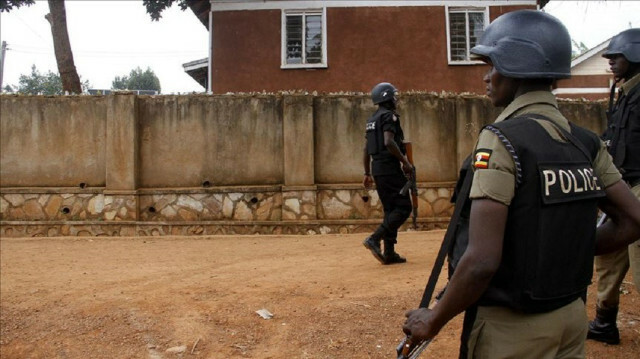
The Ugandan government is being criticized for appointing military officers to top positions on the police force, undermining traditional structures.
Beginning in 2000, President Museveni has meshed the army into the police, arguing there is a need to clean up the force of what he calls "wevils."
He started by deploying Gen. Katumba Wamala to be Inspector General of Police from 2001 to 2005. He was succeeded by Gen. Kale Kayihura from 2005 and 2018.
In January, Museveni appointed Maj. Gen. Tumusiime Kasigazi as Deputy Inspector General of Police, the third military general to occupy the position. He replaced deceased military Gen. Paul Lokech, who succeeded Maj. Gen Sabiiti Muzeeyi.
Former military intelligence chief Maj. Gen. Abel Kandiho, who was recently blacklisted by the US for alleged human rights violations, was appointed Joint Staff of Uganda Police, while Maj. Tom Magambo is now the director of the Police Criminal Intelligence as other military officers have been appointed to top police positions.
Analysts say Museveni's appointment of military officers into top positions in a civilian force threatens career policemen.
They argue that the role of the police is to maintain law and order, being supervised by military heads is a reflection that the institution is slowly being annexed.
Kira municipality legislator Ibrahim Ssemujju Nganda said the appointment of military personnel only emphasizes the ruling government's focus on promoting brutality by police officers.
"Modeling police and professionalism on militaries is not a problem, especially in mature democracies, however, in Uganda, the police is a form of state control, used by the regime to maintain the social, economic and political status quo, at the expense of public safety. The regime views dissidents as a problem to be deterred through fear and punishment, using the brutal militarized police," he said.
Minister of ICT and National Guidance Dr Chris Baryomunsi defended the militarization of the police, arguing that policing methods are influenced by the political, social, and economic structures of society.
"We are faced with modern challenges which require corresponding policing methods, and professionalizing the police on the model of the military is helpful in terms of improving effectiveness in responding to emerging challenges and ensuring public safety. Using tactical equipment is not equivalent to military operations," he said. "We don't use the military for policing duties unless there is an emergency that overwhelms the capacity of the regular police. Military involvement is usually a mission of public safety for a given time."
Political analyst Nkonge Ahmedie said concerns about militarizing Uganda police centers on the seemingly routine use of military tactics and equipment such as armored vehicles patrol rifles to respond to situations like peaceful protests of unarmed civilians.
"Responding to high-risk situations like terrorist incidents or active shooters is different from responding to civil protests. The problem is Uganda's deployment practices do not change for civil protests and responding to other situations. There is no change regarding how the police are used for these types of events and that is what has caused public criticism of police agencies becoming militarized," he said.
He added that for some law enforcement tasks, military-like displays are understandable, but the aggressive approach to dealing with protests contribute to a militarized appearance of the police as a captive to powerful interests, which is unwelcome for much of the public.













